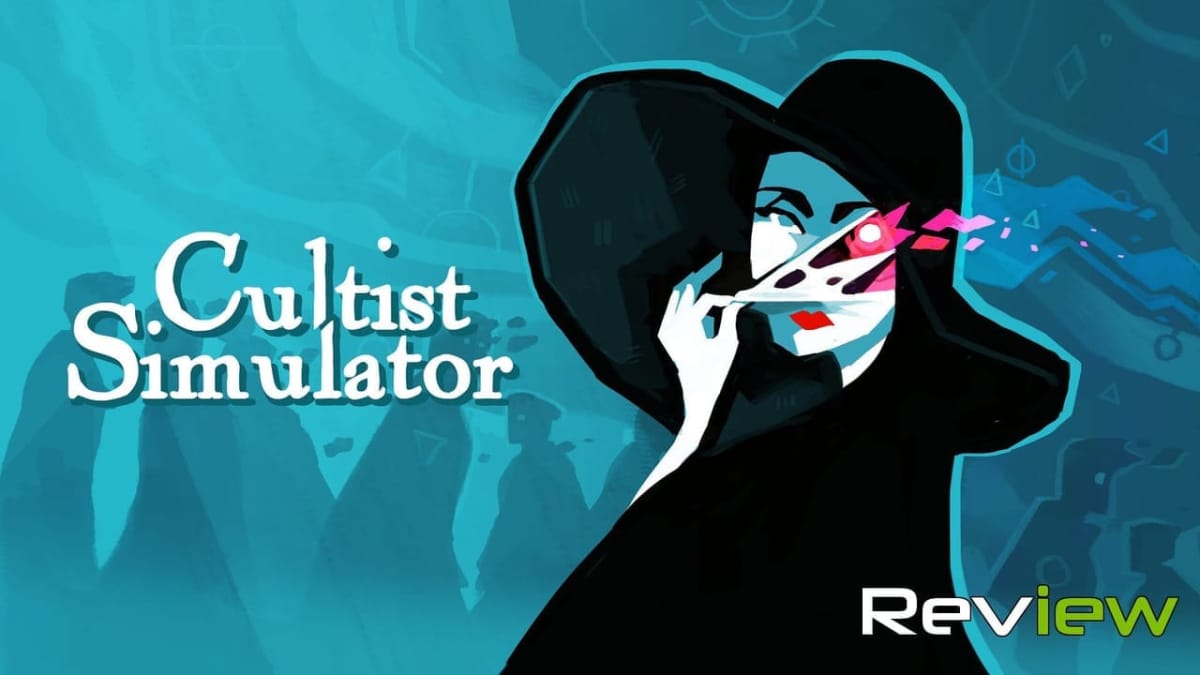Your research is almost complete. A literal timer ticks down showing the progress of it. When it's done, you will have the last piece required for the ritual you've been planning, you know this because you've been here before. You're following the steps you've completed several times, only this time, your attempts have yet to be thwarted. Your previous attempts ended when you starved, went insane and suffered badly at the hands of an investigator. But this time, this time it's all going right. You look at your other ongoing activities to make sure all is in order.
Dreaming and Working run simultaneously beside each other, earning funds and working on removing despair to keep you sane and healthy. You send a follower to remove an investigator as your research completes and you are given the final item needed for the ritual. You gather your followers, the items and the literature and begin the ritual. Another investigation begins, pulling evidence against you to it like a magnet and another countdown clock begins, it will beat your ritual timer by seconds unless you act fast. You won't let them get you. Not this time.
Cultist Simulator is a narrative real-time strategy game that uses cards on a virtual table to represent your resources and activities, which you use to explore its Lovecraftian / Call of Cthulhu-esque 1920's world. All of the results and resources are shown and managed through these cards, text boxes and task timers. That would be the most straightforward way to describe Cultist Simulator, yet it wouldn't capture the depth and the perfect balance of frustration, suspense, and self-satisfaction that playing it provides.
When first starting the game, you begin life as an Aspirant and are provided with your first card and task timer. The card is Menial Employment and the task timer is Work. Clicking on the task timer brings up the details and reveals which cards can be used in the task, some tasks require a combination of different cards, some have options and others have varying effects. You might not get the same card back that you put in. For example, if you talk with someone who is investigating you, their card might change to a follower, or you might get the same Investigator card back combined with a Notoriety card, which in turn has its own effect. This, in essence, is what Cultist Simulator is about, exploration, puzzle solving and a lot (and I mean gargantuan, Cthulhu-summoning sized portions of) of trial and error.
But before you can start all that, you're left with a very straightforward choice when you start, so you move your Menial Employment card into the Work slot and begin your descent into the unknown.
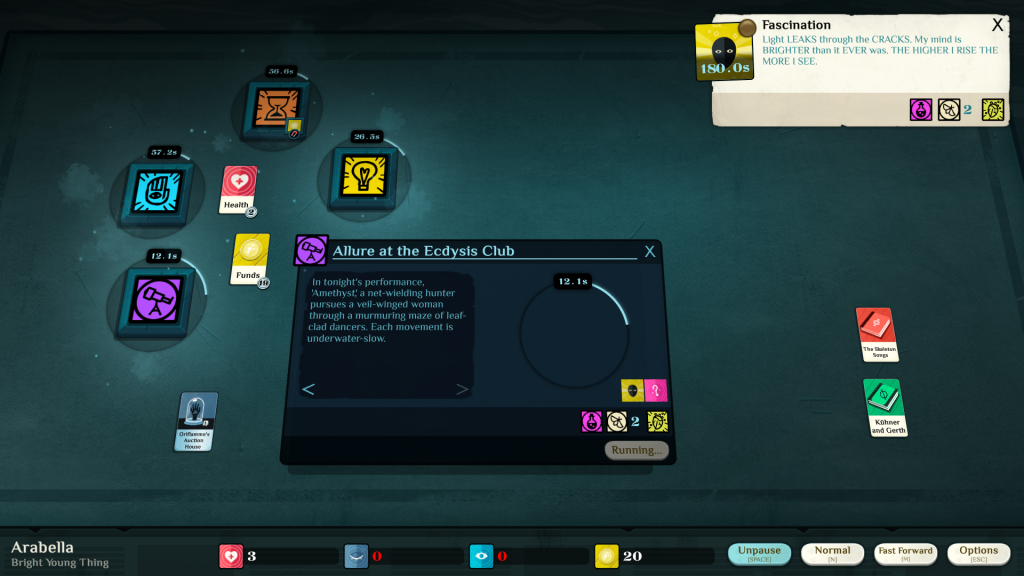
Varying things happen when playing Cultist Simulator, all depending on how you play it and which roads you chose. Some games are fast (read, you starve, go mad or get sick and die) and some can take few hours to complete one of the many paths to victory. Sometimes victory can surprise you, or a new random path opens and you change goals. The one thing that is present throughout the game is time. There's a constantly running timer called 'Time Passes' that regularly takes a fund card from your pool of resources.
These funds usually come from work, so your first call is to make sure you have a form of income and then regularly maintain it. If the Time Passes clock runs out and you have no funds, your health starts to deteriorate and you can find yourself on a spiraling path to ending your game quickly as time will still keep passing, requiring its regular input of funds, but now you might also have an ailment which has its own effects.
After you've got some form of income sorted, the game will open up properly. You will be able to obtain and research texts and artifacts, discover and explore new areas and you will meet new people along the way. Some will be allies, followers, pawns, sacrifices, but others may try to stop you on your quest.
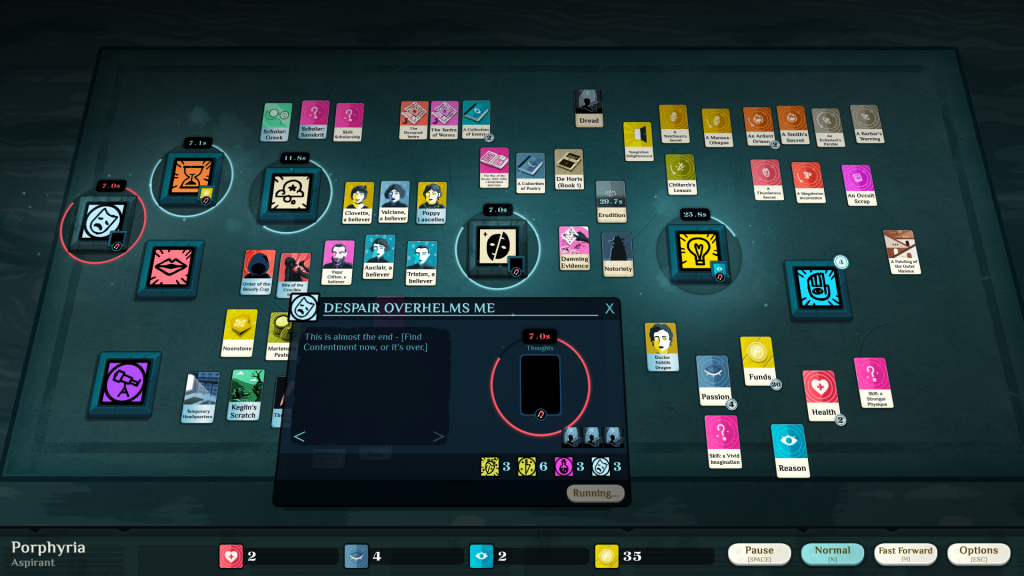
Cultist Simulator regularly saves as you play, but there's only one save and no save select, so make a mistake, you're dealing with it for this playthrough. This makes remembering patterns, paths and card creation combinations key to playing Cultist Simulator. This isn't, however, a game you simply start, play to completion and then move on from. Cultist Simulator is a game of multiple paths and endings, and exploring these is what makes it so interesting. Will you go for a promotion at work, whatever it costs? Will you explore hidden areas in the hope of uncovering the last artifact needed for a ritual? How will you deal with your enemies, friends, followers? These are some of the choices you have to make as the game moves and the timers tick down.
You can pause the game at any point in order to read cards and explore options, but completing tasks takes time, so in order to complete tasks, the timer needs to be running, which also mean that time is passing, funds are needed, investigations are also moving against you, how's your mental health? Your physical health? If not maintained alongside your investigations, rituals, dreams, research, and conversations, they can soon get out of hand and end your game prematurely.
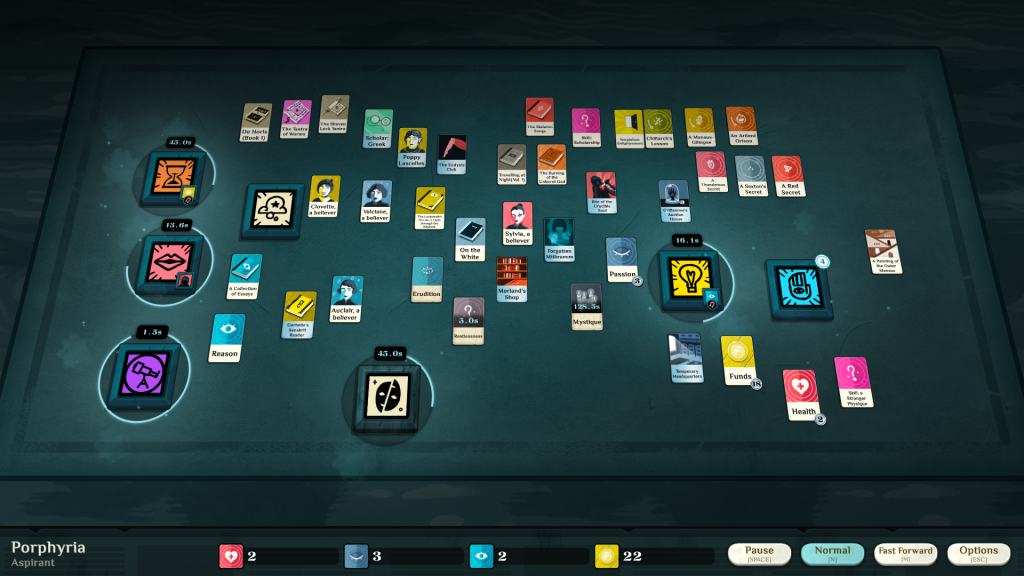
Death isn't the end in Cultist Simulator though, just like completion isn't the end. New starting options unlock after each game, and these allow you a slight jump-start on your next attempt. We are of course being very vague in our description, simply because experimentation and experience are so key to enjoying Cultist Simulator. There is no right way to go about handling the game, simply options that work and those that do not. Any information on card combinations or actions can lead to being taken as a prescriptive action and finding out for yourself, or failing for yourself is what this is all about. Even if you find something that works the first time, doesn't mean that's the path you should follow next time.
Players will also notice that there is no tutorial. In a game of experimentation, risks, and options, this feels like a deliberate choice not to include. Try something, anything, the game won't let you put cards that won't work in certain slots, so pause the game, see what fits where explore your options. Fail. Then try something else. Learn, adapt and build your cult, or don't, solo it see what happens. Each new story ending found felt great and then instantly frustrating as you can't quite remember the choices you made to get there when you try to do it again. But that's the beauty you will come to love.
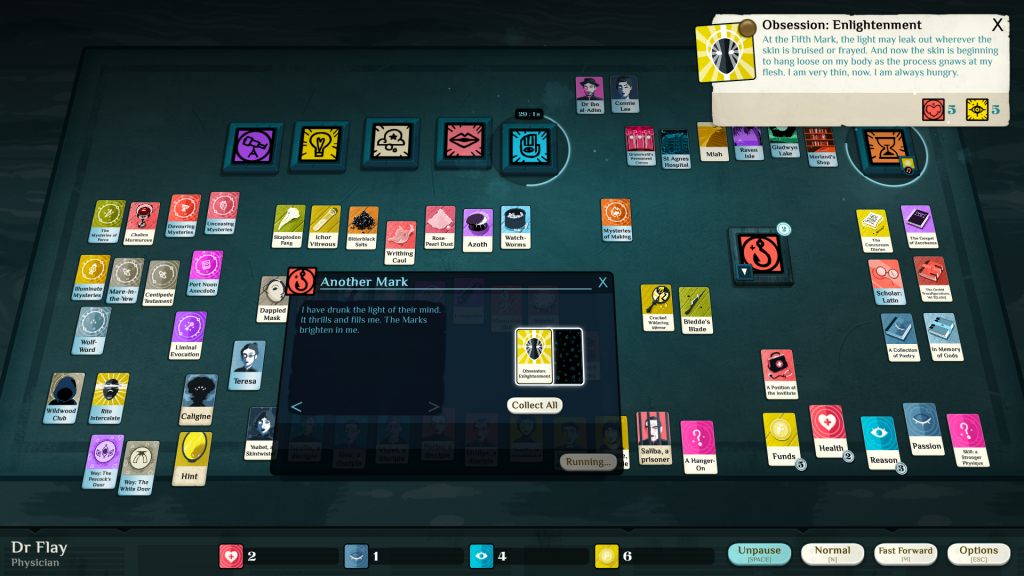
Cultist Simulator won't be for everyone, but if you have any love for the setting, a passion for a puzzle, or enjoy a rewarding narrative experience, I implore you to give Cultist Simulator a try. The playstyle, despite the lack of graphical interactions, other than the cards and narrative details, doesn't take away from suspense and actually adds to the theme and feeling of powerlessness that ultimately comes from watching your decisions evolve as explore the consequences of your actions.
It might take you a few attempts to get the game rolling to start with, but this is part of the process. As soon as you have the basics nailed and you find that you're not starving or going insane, more options will open up as you progress, so don't be disheartened if you see screenshots of other players of boards filled with cards and timers.
Cultist Simulator Review | Final Thoughts
Cultist Simulator is an incredible game. The minimalist graphical details actually focus the player on the narrative, drives the theme and adds to the building suspense and unease. The different story progression options are interesting and detailed and each attempt will bring new understanding, based on player experience and experimentation. The interface and the way the timers tick as you move cards around and desperately try to manage your resources really emphasizes the chaos, bordering on the side of madness, with a hint of the surreal. It will take quite a few attempts to be able to even understand, let alone maintain this chaos. Embrace your failures, try something different, or try the same. It might not always have the same result.
Cultist Simulator was reviewed on PC via Steam with a copy provided by the publisher. It is also available DRM-Free via GOG. [Affiliate Links]
Review Summary
Pros
- Interesting Narrative Driven Story
- Extremely Thematic
- Rewards Experimentation
Cons
- Unforgiving Gameplay
- Steep Learning Curve
Have a tip, or want to point out something we missed? Leave a Comment or e-mail us at tips@techraptor.net
